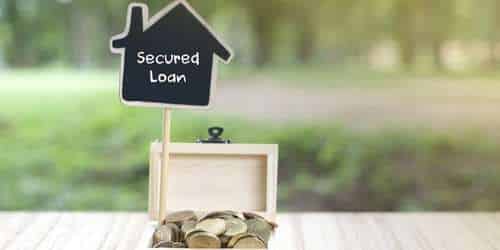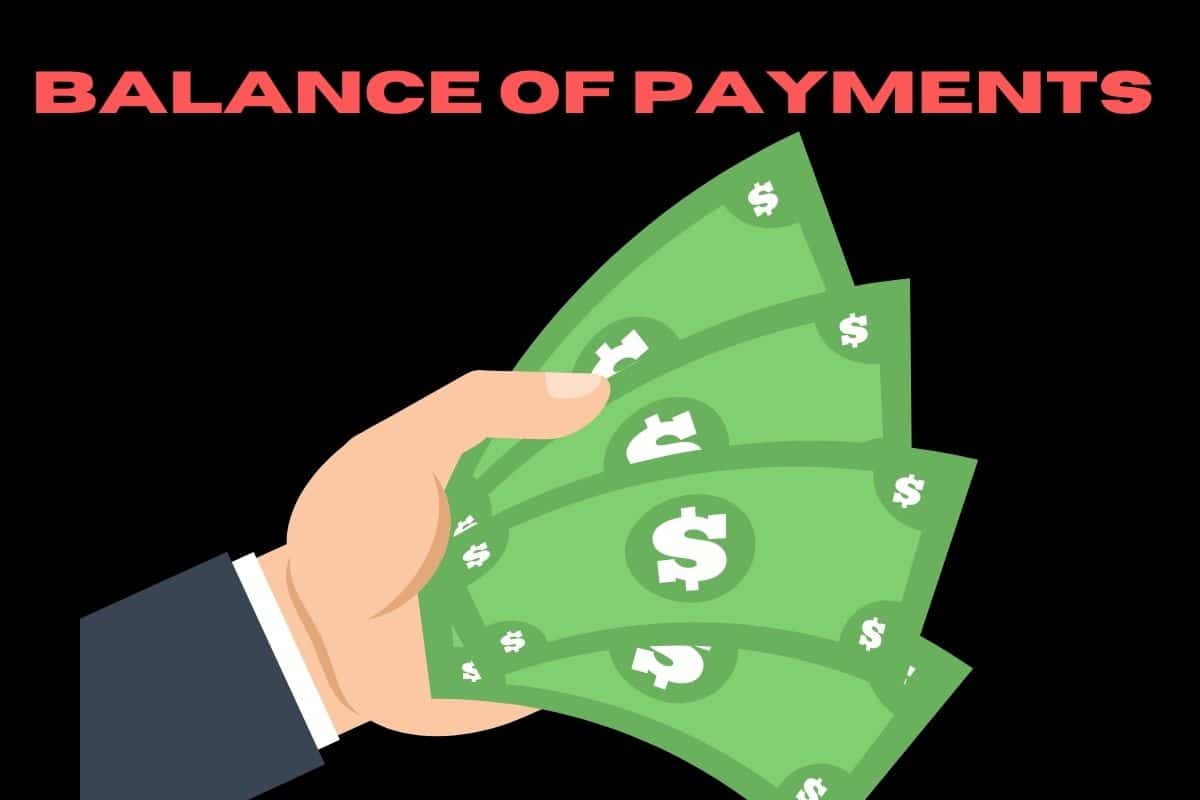If you want to borrow money, you’ve probably already started looking into different options. Loans are a popular option for many consumers, and they are available in two varieties: secured and unsecured. However, the distinctions between the two are not always clear. This is why this guide has simplified information on what a secured loan is, secured vs. unsecured loan, the different types, and what you can do if you have bad credit. Let’s get into the specifics.
What Are Secured Loans?
Secured loans are commercial or personal loans that require collateral as a condition of borrowing. A bank or lender may request collateral for large loans where the funds are being used to purchase a specific asset or when your credit scores are insufficient to qualify for an unsecured loan. Secured loans may allow borrowers to benefit from lower interest rates because they pose less risk to lenders. Certain secured loans, such as bad credit personal loans and short-term installment loans, may have higher interest rates.
How does a Secured Loan Work?
Secured loans function when you and a lender agree on a specific asset to serve as collateral as well as a loan amount of comparable value. Assume you require a loan and your jewelry collection is worth $10,000. You may be able to borrow up to $10,000 and set up a payment plan with your lender. Again, if your loan repayment fails, your lender may seize the jewelry, depending on the loan agreement.
Types of Secured Loans
Secured loans can be used for a variety of objectives. For example, if you need money for personal reasons, secured loan possibilities include:
- Vehicle loans
- Mortgage loans
- Share-secured or savings-secured Loans
- Secured credit cards
- Secured lines of credit
- Car title loans
- Pawnshop loans
- Life insurance loans
- Bad credit loans
Vehicle loans and mortgage loans, as previously stated, are secured by their respective assets. Loans secured by stock or savings function a little differently. These loans are secured by funds saved in a credit union or bank’s savings or certificate of deposit (CD) account. If you can’t get approved for other forms of loans or credit cards, this type of secured loan can help you build credit.
The collateral you supply for a secured credit card or line of credit may not be a physical asset. Rather, the credit card company or lender may want a cash deposit as collateral. A secured credit card, for example, may demand a few hundred dollars in cash to open. Your credit limit is therefore doubled as a result of this cash deposit.
Whatever type of personal loan you’re contemplating, it’s typically a good idea to start by using a personal loan calculator to determine the best monthly payment amount, term length, and interest rate for your circumstances.
Business Loans
Business loans can also be secured, but they can also be unsecured. A secured business loan, for example, is an equipment loan. Assume you operate a construction company and need to buy a new dump truck. You might pay for it with an equipment loan secured by the dump truck you want to buy. You would not be at risk of losing the equipment you purchased if you paid the loan on time.
One thing to keep in mind concerning secured company loans is that you may be asked to provide a personal guarantee. This means you agree to be personally accountable for any obligations incurred by your company if the company fails on the loan. Consequently, if your company falls into cash flow problems, you could be personally sued for a defaulted loan.
Car Title Loans and Pawnshop Loans
Car title loans and pawnshop loans are two other types of secured loans. This loans allow you to borrow money by using the title to your vehicle as security. Depending on what you’re willing to pawn, pawnshop loans can use anything from tools to jewelry to video game systems as collateral. They are often short-term loans that enable you to borrow small sums of money.
Life Insurance Loans
A life insurance loan allows you to borrow money against the cash value of a life insurance policy. You might then repay the loan throughout your lifetime or have it deducted from the death benefit awarded to your beneficiaries when you die. This loan is provided in conjunction with permanent life insurance plans such as variable or whole life insurance.
Bad Credit Loans
Poor credit Personal loans are yet another type of secured loan. These are personal loans for people with bad credit backgrounds. Lenders can provide negative credit personal loans, but they may require cash security, similar to share-secured loans, secured credit cards, and secured lines of credit. With a bad credit-secured loan, a lower credit score can mean a higher interest rate and/or costs.
Secured vs. Unsecured Loan
Borrowers of secured loans should assess the benefits of acquiring a secured loan over an unsecured loan.
A secured loan requires the borrower to put up significant collateral in order to acquire the loan, whereas an unsecured loan does not require any collateral. If you are late or default on an unsecured loan, the lender has no recourse to any of your property or assets. Among the most frequent types of unsecured loans are credit cards, student loans, and personal loans.
Secured loans have various advantages versus unsecured loans, including the following:
- A secured loan is easier to obtain than an unsecured loan because you are putting down security.
- Because secured loans carry less risk for lenders, individuals with lower credit ratings may find it easier to obtain a secured loan.
- Secured loans typically have lower interest rates than unsecured loans, making them an excellent option for consumers on a tight budget.
- Secured loans often allow borrowers to obtain a larger loan amount than unsecured loans, providing the secured loan borrower with more financial options, albeit at a higher financial risk in the form of potentially shorter secured loan repayment periods.
On the negative side, acquiring a secured loan usually implies having less time to repay the loan (since lenders would prefer to have the payment plus interest than the borrower’s collateral assets). Furthermore, due to the complications of properly assessing a borrower’s collateral, the approval procedure for a secured loan typically takes longer than for an unsecured loan, where a response is usually received within a day or two.
What are the Advantages and Disadvantages of Secured Loans?
Secured loans have numerous advantages. You will almost always have a higher borrowing capacity and may be able to obtain a lower interest rate and a longer repayment period. Also, you may be able to deduct interest paid on some loans, such as mortgages.
If you fail to make loan payments on a secured loan, you risk losing your collateral. Also, you cannot spend the funds as you see fit – the loan must be used for its designated purpose (except in the case of home equity lines of credit).
How do I apply for a secured loan?
Do the following procedures before applying for a secured loan:
#1. Check your credit
You should examine your credit report before applying for a loan. The loan is mostly determined by your creditworthiness, and while secured loans have less severe credit requirements than unsecured loans, knowing your credit score is still necessary for qualification.
#2. Check the value of your assets
When looking into lenders, get an appraisal or look up the projected resale value of the asset you want to use as collateral.
#3. Shop around with different lenders
You can compare lenders’ rates and fees by shopping around. Many lenders provide prequalification, which allows you to check what you’re qualified for without affecting your credit. It’s always a good idea to be prequalified with at least three different lenders.
#4. Apply for the loan with the most competitive lender
If you apply with an online lender, you can usually complete the full process online. You may be required to visit a physical site if you apply at a bank or credit union.
Can you get a Secured Loan with Bad Credit?
Sure, you can acquire a secured loan even if you have bad credit. Because you are backing the loan with collateral (such as a home or car), the lender can recuperate their losses if you default on the loan. This eliminates their risk and lowers the entry level for receiving the loan.
Can you Pay off a Secured Personal Loan Early?
A secured loan can be paid off early, although certain lenders may incur a prepayment penalty. Paying off your loan early may not save you money if there is a prepayment penalty.
You should also know that paying off debt early may also have the effect of lowering your credit score. Paying off a secured loan may lower your credit mix and the average age of accounts, both of which contribute to your credit score.
The amount of open and terminated accounts on your credit report will determine the true influence on your credit score. Your credit score may decline, but it may rise if you have few open accounts and pay off the loan accounts for a substantial amount of your credit mix. Finally, you should assess the advantages and disadvantages of paying off the debt early.
What types of collateral are used to back a secured loan?
Secured loans are sometimes the best — and often the only — option to get huge sums of money. As long as it is legal, almost anything can be accepted as collateral. Lenders like assets that are simple to gather and convert into cash. What you use as collateral will most likely be determined by whether your loan is for personal or business purposes. These are some examples of collateral:
- Real estate, especially home equity
- Accounts in cash (retirement accounts typically do not qualify)
- Automobiles and various modes of transportation
- Equipment and machinery
- Investments
- Insurance coverage
- Collectibles and valuables
What are the Examples of a Secured Loan?
Mortgages and vehicle loans are the most frequent types of secured loans, and the collateral in these cases is your home or car. Yet, collateral might be any type of financial asset that you own.
Is it a Good Idea to get a Secured Loan?
Yeah, it is. Secured loans have numerous advantages. You will almost always have a higher borrowing limit and may be able to obtain a reduced interest rate.
What is Required for a Secured Loan?
Personal loans that are secured are backed by collateral, such as a savings account, certificate of deposit, or automobile. Because the lender has the right to keep your collateral if you fail to make your payments, they are often easier to qualify for than unsecured personal loans.
How much can I Borrow from a Secured Loan?
Typically, you can borrow up to half the amount of the collateral. If you own a $20,000 car, you can probably secure a $10,000 loan by using the car as security. A car, savings account, retirement account, jewelry, or anything else of value you own can also be used as collateral for a secured loan.
What is a Disadvantage of a Secured Loan?
One downside is that the personal property designated as loan security is in danger. If you get into financial trouble and are unable to repay the loan, the lender may confiscate the property. Normally, the loaned cash can only be used to acquire a certain object, such as a home or a car.
How Long can a Secured Loan be Chased?
A collector has a limited number of years to take you to court to force you to pay a debt that you owe. The maximum statute of limitations in the United States is 15 years. Yet, most states limit the duration of credit card contracts and loans to 4-6 years.
Do Banks still give Secured Loans?
Banks, credit unions, and online lenders all offer secured personal loans. Shop around and compare interest rates, collateral requirements, and payback terms before applying for a secured personal loan. Consider other choices before considering a car title loan or pawn shop loan.
Can you get a Secured Loan without Proof of Income?
You can even qualify for a secured loan if you have no income. If you don’t have any income, you’ll need assets to utilize as collateral.
In Summary
Obtaining a secured loan is a serious personal financial problem, and it takes much research and preparation to obtain the best-secured loan for your specific circumstances, as well as a good repayment plan. The best method is to understand the stakes, deal with the correct lender, and have a backup plan in place if you run into financial difficulties while repaying your secured loan. If you address those critical difficulties, your secured loan experience can be a positive one, with you receiving the loan you require while keeping your important items in your name.
This is why this guide has simplified information on what a secured loan is, secured vs. unsecured loan, the different types, and what you can do if you have bad credit.
Related Articles
- The BEST CREDIT CARDS FOR FAIR CREDIT 2023 (Detailed Guide)
- UNSECURED DEBT: Definition, Types and Examples
- HOW TO BUILD CREDIT AT 18: Detailed Guide
- SECURED VS UNSECURED CREDIT CARD: Comparing the Difference
- HOW TO USE CREDIT CARD TO BUILD CREDIT: Detailed Guide
- SAVINGS AND LOAN CRISIS OF THE 1980s: Causes And The Impact






